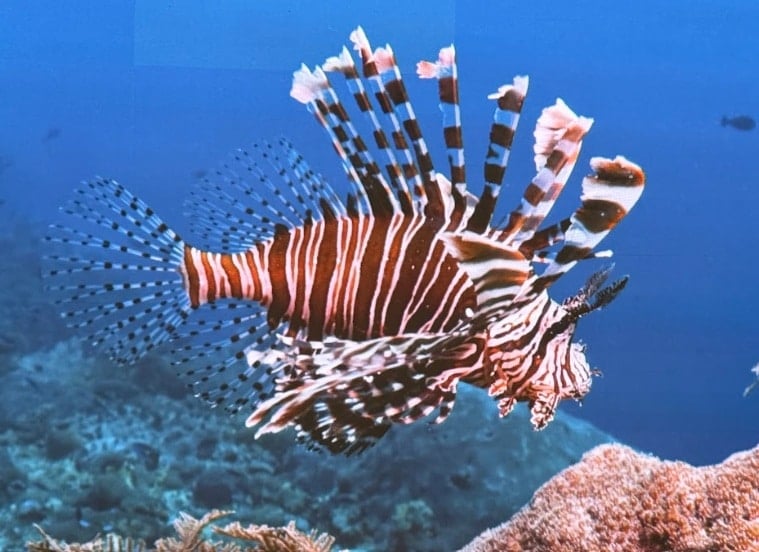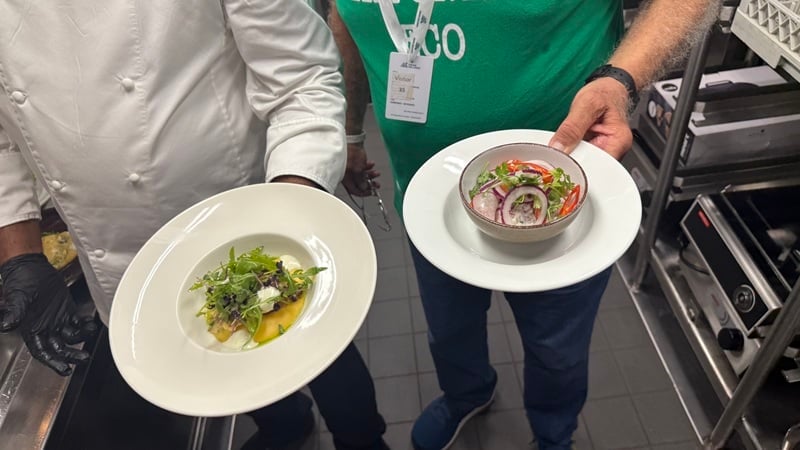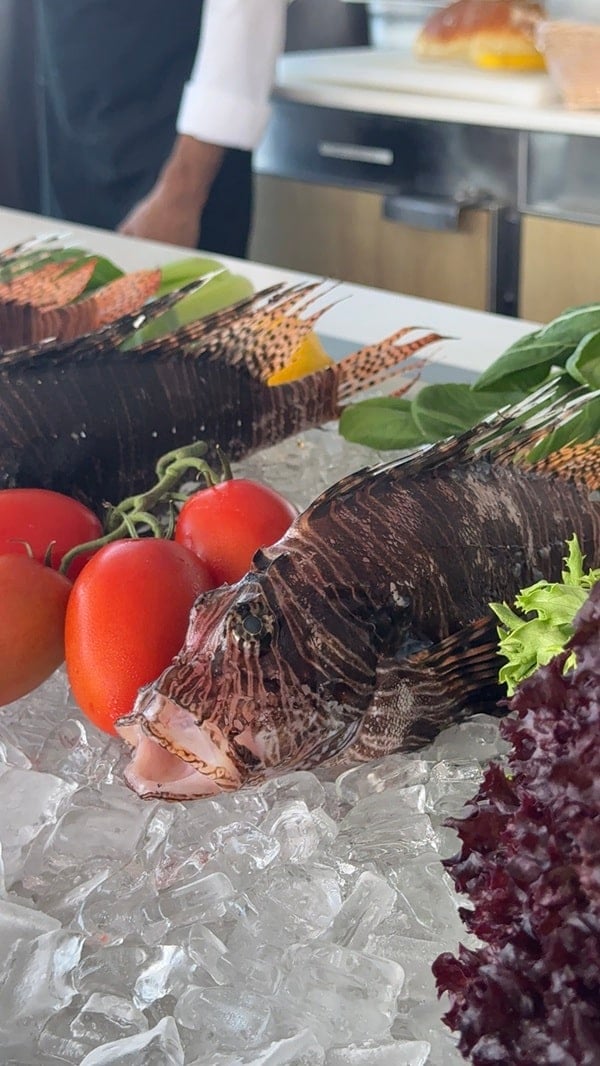
Lionfish pose a serious threat to native ecosystems because they have few to no natural predators in the Mediterranean. Public Domain
A unique partnership in Greece is fighting back against one of the biggest ecological threats in the Mediterranean—the lionfish—and it’s using a surprising weapon: gastronomy. Cruise line Swan Hellenic and the conservation group Elafonisos Eco have joined forces to launch the “Lionfish Control” initiative.
The lionfish is a significant ecological threat to the Mediterranean Sea and Greece due to its status as a highly successful invasive species. It found its way to the Mediterranean primarily through the Suez Canal, a phenomenon known as Lessepsian migration, and has rapidly spread throughout the eastern part of the sea, including the waters around Greece.
It poses a serious threat to native ecosystems primarily because they have few to no natural predators in the Mediterranean. The venomous spines of the lionfish deter most local species from attacking them, allowing their populations to multiply unchecked. A single female lionfish can produce up to two million eggs per year.
Lionfish treats in Greece
The project recently came to life for passengers aboard the SH Diana, who were treated to a feast of lionfish. The culinary event featured fresh catches from local waters, which Swan Hellenic’s chefs transformed into delicious dishes.
A feast of lionfish. Credit: Elafonisos Eco
The special dinner was followed by an informative workshop, during which Elafonisos Eco representatives explained the dangers of the invasive lionfish while also highlighting how to turn this threat into a positive force for the local economy and environment.
Gastronomy against fish invasion. Credit: Elafonisos Eco
The effort has also gained support from the Lassithi Development Agency, which is promoting the inclusion of lionfish in local diets across Crete. This partnership exemplifies how various sectors can unite to create practical solutions.
“This cultural change—the transformation of an ecological threat into an opportunity—is at the core of the Lionfish Control initiative,” a joint statement from Swan Hellenic and Elafonisos Eco confirmed. The collaboration serves as a powerful model for how tourism, science, and local communities can collaborate to protect our oceans and build a more sustainable future.
Elafonisos Eco, founded in 2013, is the first ecological association created on a Greek island. Based in Elafonisos, Laconia, it promotes the vision of “Living Green,” combining local participation with international cooperation to address critical environmental challenges.
Related: Lionfish Invasion Battled by Scientists — and Chefs


